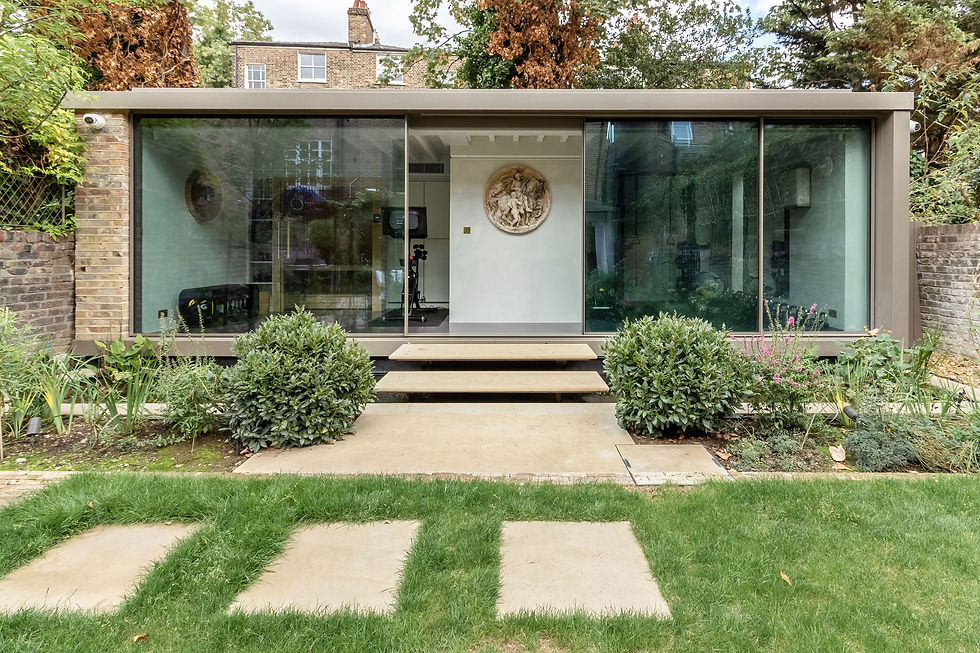How Long Does An Extension Take To Build?
- UK construction Services
- Dec 3, 2024
- 3 min read
When considering a house extension, many homeowners have one pressing question: How long does an extension take to build? The timeline for a building project can vary widely depending on numerous factors, including the type of extension, the complexity of the design, and the efficiency of the builders involved. In this blog, we will explore the factors influencing the construction timeline and provide a general overview of what you can expect.
Understanding the Types of Extensions
1. Types of House Extensions
There are various types of house extensions, and each comes with its own set of timelines. Here are some common types:
Single-storey Extensions: Typically the quickest to build, these extensions can often be completed in 8 to 12 weeks, depending on the design and the building contractor.
Double-storey Extensions: These are more complex and generally take longer, often requiring 12 to 16 weeks or more to complete. This is because they involve additional structural work and planning.
Loft Conversions: Converting a loft into a usable space usually takes about 8 to 10 weeks. However, the timeline may extend if structural changes are necessary.
Kitchen Renovations: If you are incorporating a kitchen extension, this could add another 3 to 5 weeks to the overall timeline, especially if major plumbing or electrical work is required.

2. Factors Affecting Construction Time
The time it takes for your builders in Teddington to complete an extension depends on several factors:
Planning Permission: If your extension requires planning permission, this can delay the start of construction. Generally, it takes about 8 weeks for local councils to process planning applications.
Design Complexity: More intricate designs will require additional time for both planning and construction. Simpler designs may be built more quickly.
Weather Conditions: Adverse weather can significantly impact construction schedules, causing delays, especially during the winter months.
Availability of Materials: Delays in sourcing materials can prolong the building process. Engaging a reliable building company can help mitigate this issue.
The Construction Process
1. Initial Consultation and Planning
Before any physical work begins, you will need to consult with your building contractor. This initial phase usually involves:
Design Discussions: Outlining your vision and determining the feasibility of your ideas.
Budgeting: Estimating costs and discussing financing options.
Planning Permission: Applying for necessary approvals can take 6 to 8 weeks.
2. Preparing the Site
Once planning is secured, your builders will prepare the site for construction. This includes:
Clearing the Area: Removing any existing structures or landscaping.
Laying Foundations: The foundation work can take 1 to 3 weeks, depending on the size of the extension.
3. Building the Structure
The actual construction of the extension is the most time-consuming phase:
Erecting Walls and Roofs: This can take 4 to 8 weeks, depending on the size and complexity of the extension.
Windows and Doors Installation: Adding windows and doors typically takes 1 to 2 weeks.
4. Interior Work and Finishing Touches
Once the structural work is complete, the focus shifts to interior finishes:
Electrical and Plumbing Work: Essential for extensions that involve kitchens or bathrooms, this phase can take 2 to 4 weeks.
Finishing Work: Includes plastering, flooring, and painting, usually taking 2 to 4 weeks.
Final Inspections: Ensuring everything meets building regulations may require an additional 1 week.
5. Overall Timeline
In summary, the overall time for a house extension project can typically range from 12 to 24 weeks, depending on the type of extension and various external factors.

Working with Professional Builders
1. Choosing the Right Building Company
Selecting the right building company is crucial to ensuring your project runs smoothly and stays on schedule. Here are a few tips:
Check Qualifications: Ensure your builders have the necessary licenses and insurance.
Read Reviews: Look for testimonials and previous project examples to assess the quality of their work.
Get Multiple Quotes: This will help you understand the market rate and make an informed decision.
2. Importance of Communication
Effective communication with your building contractor is vital throughout the project. Regular updates and discussions can help keep the project on track and address any potential issues before they escalate.
Conclusion
Understanding the timeline for your house extension can help you plan better and set realistic expectations. While the duration can vary based on numerous factors, having the right builders and a solid plan in place will contribute significantly to a smoother process. Whether you're considering a loft conversion, kitchen renovation, or a more extensive home refurbishment, knowing what to expect can help you enjoy your new space sooner.
By working closely with a reputable building service, you can ensure your project is completed efficiently and to your satisfaction. So, start your journey towards a more spacious and functional home today

Comments